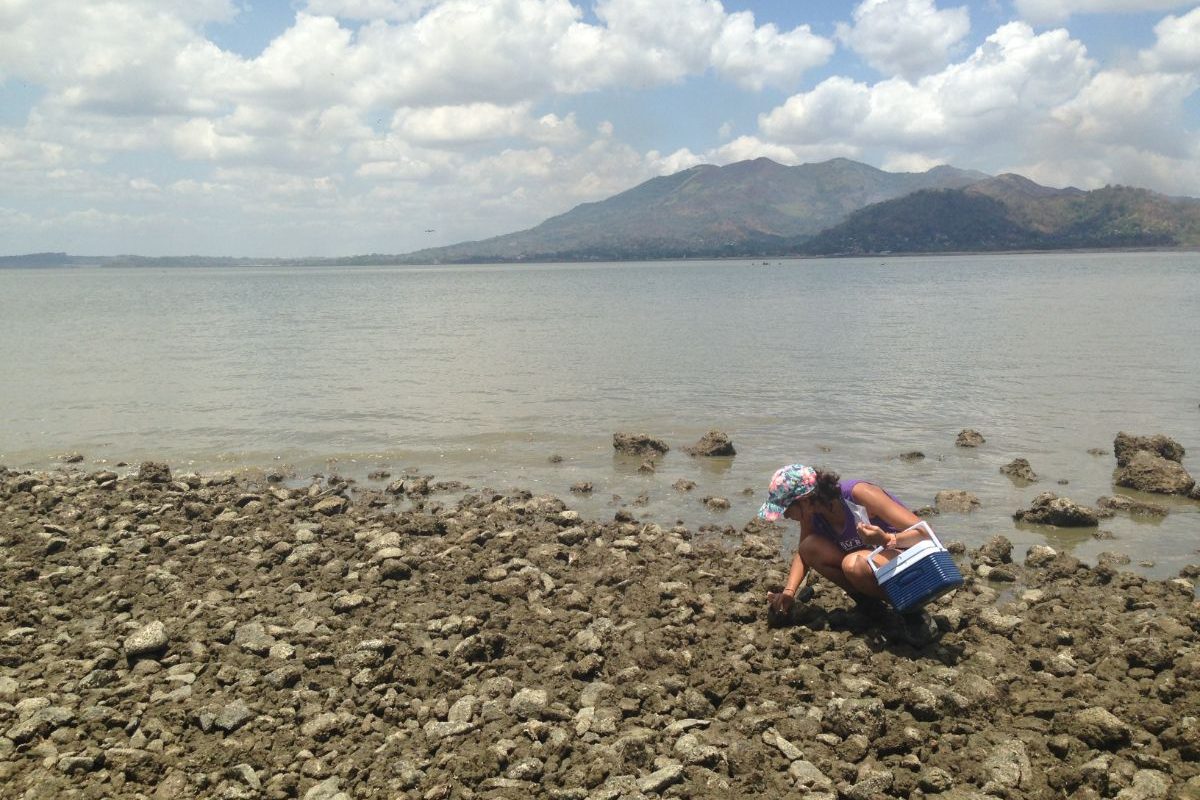Meet Laura, science marketeer, marine biologist, and lobster expert! Laura joined us for Leg 2 of our North Pacific expedition in 2018 as a Bursary Placement. We have been catching up with Laura about her efforts to bring science and storytelling together, to make an impact and protect the future of our ocean.
Meet Laura, science marketeer, marine biologist, and lobster expert! Laura joined us for Leg 2 of our North Pacific expedition in 2018 as a Bursary Placement. We have been catching up with Laura about her efforts to bring science and storytelling together, to make an impact and protect the future of our ocean.
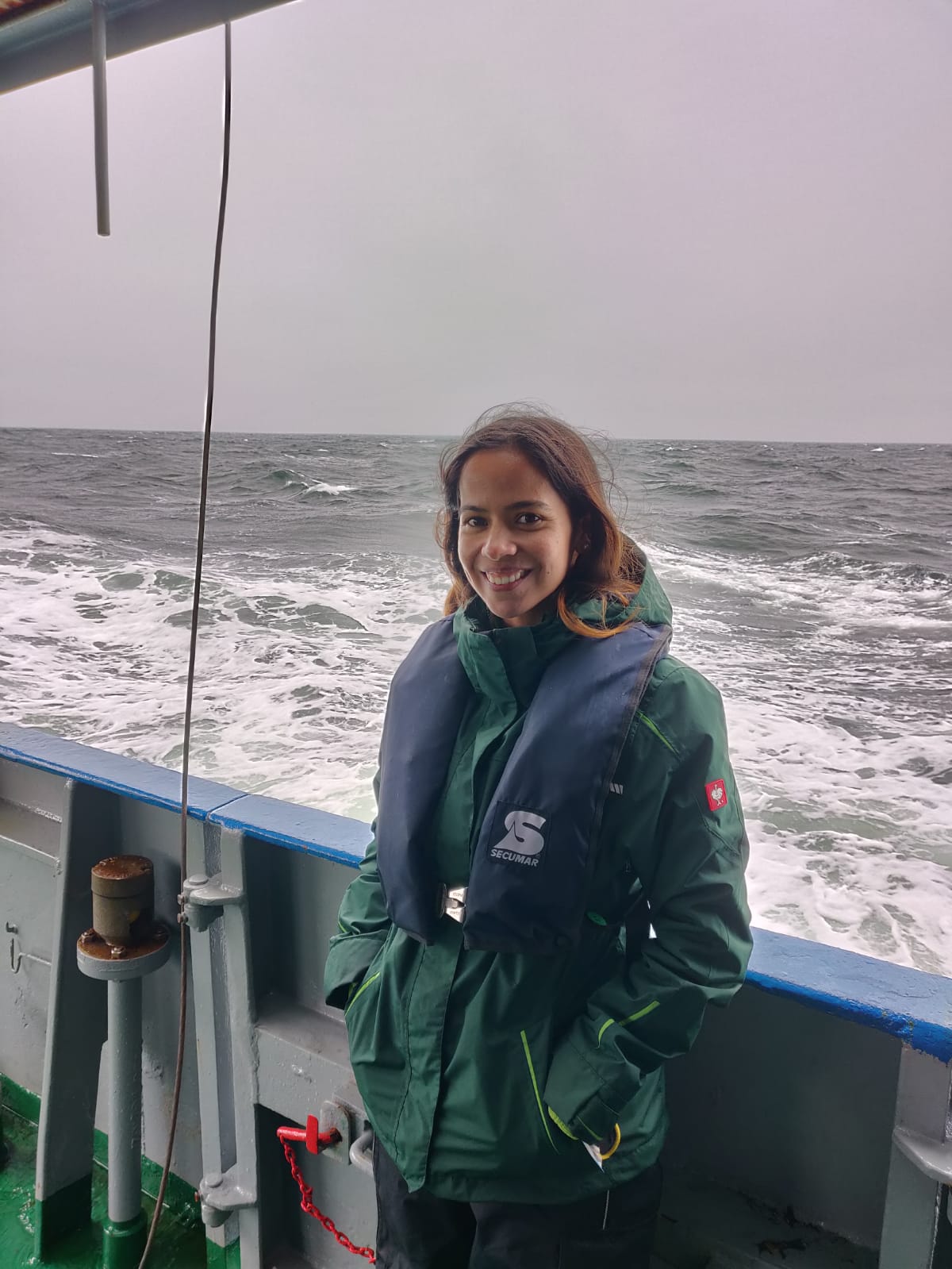 Laura, eXXpedition North Pacific, 2018
Laura, eXXpedition North Pacific, 2018
Can you tell me a bit about yourself?
I grew up in Honduras, but moved to Taiwan for my Bachelors. I always wanted to study abroad, and decided to move to Panama to study tropical marine environments at the Smithsonian Tropical Research Institute. Whilst there, I was able to study an amazing array of creatures from porcelain crabs to starfish.
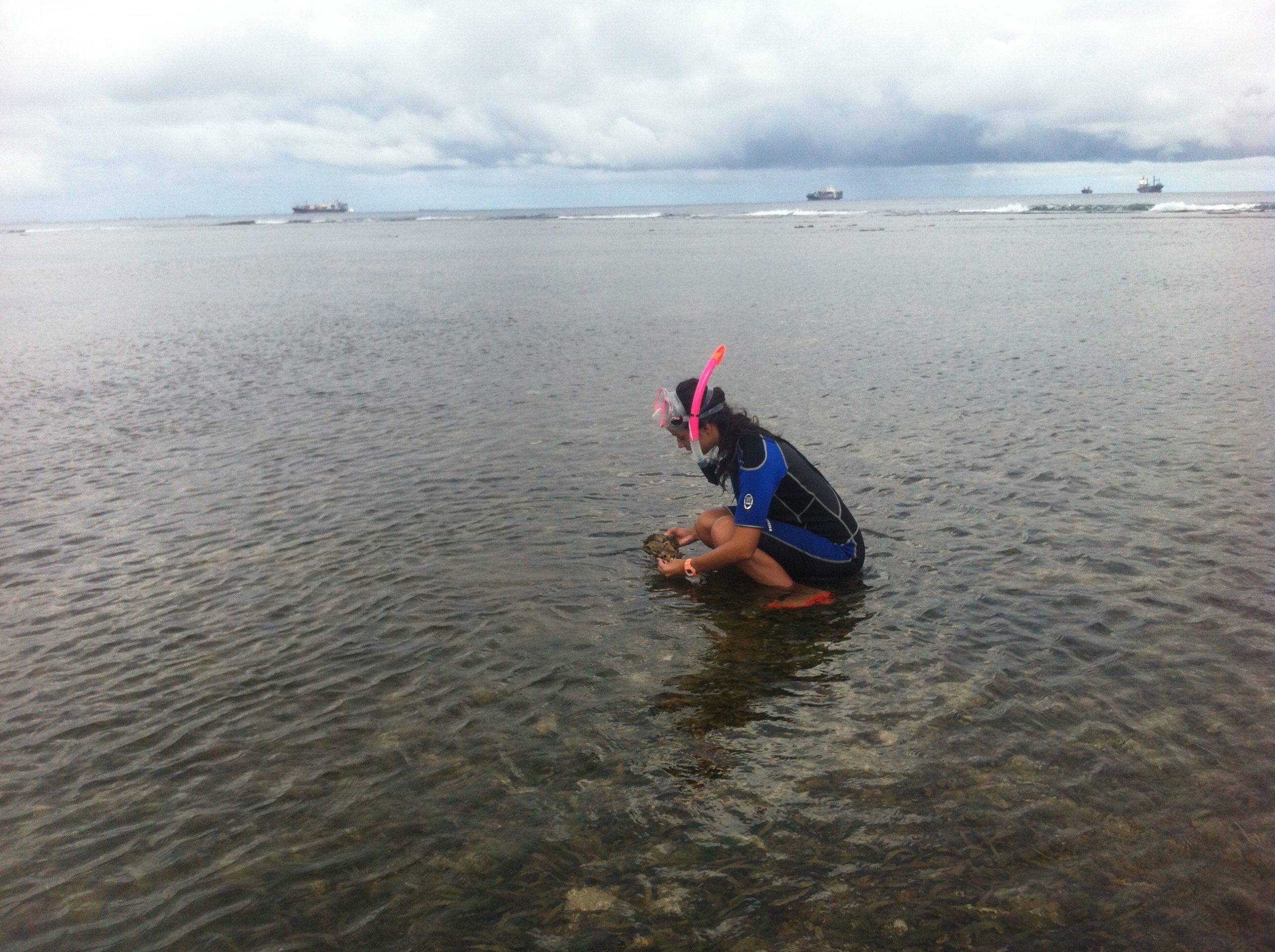 Laura collecting Sea Urchins, Panama
Laura collecting Sea Urchins, Panama
After my masters, I decided to continue my studies by pursuing a PhD. My master thesis was focused on marine sponges Munich. After finishing, I decided to apply to a research project in Heligoland – a tiny island off the coast of Germany – where I spent 3 years investigating the island’s lobster populations.
Since then, I have returned to Munich, and now work in Science Marketing at siTOOLs – a German-based biotech. Writing writing and telling stories has always been something I’ve loved, so it’s been great to have the opportunity to bring our science to life through our marketing and communication channels.
I have also just finished writing my thesis – which I’ll be handing in 2 weeks time!
How did you end up joining eXXpedition?
During my Masters I had to write a review, which I chose to write on marine plastic pollution. Through that research, I came across eXXpedition. I was really drawn to the fact that they were not just “scientists”, but instead a complete range of women from all different walks of life.
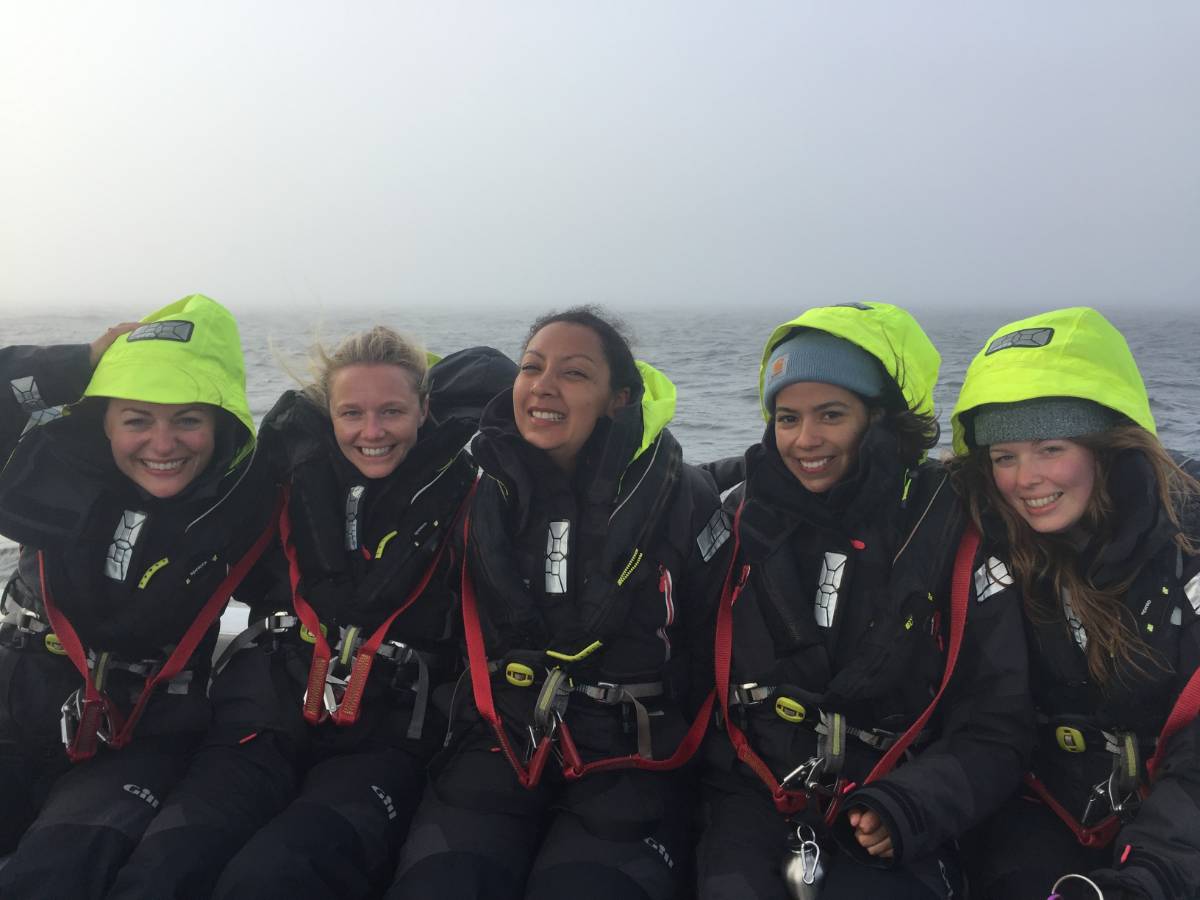 Laura and Crew, eXXpedition North Pacific, 2018
Laura and Crew, eXXpedition North Pacific, 2018
The review motivated me to continue researching issues surrounding marine pollution. After seeing the Pacific voyage advertised advertised, I applied, and was, fortunately, accepted.
So, why Heligoland, and why lobsters?
Heligoland is a wildlife haven! Where the island is sparse in people (only 1300 to be precise!) it is rich in wildlife – from plankton, to rare sea birds, seals and crabs. They have a very famous marine station that has been there for over 125 years, so it’s a real honeypot for marine-enthusiasts – like me!
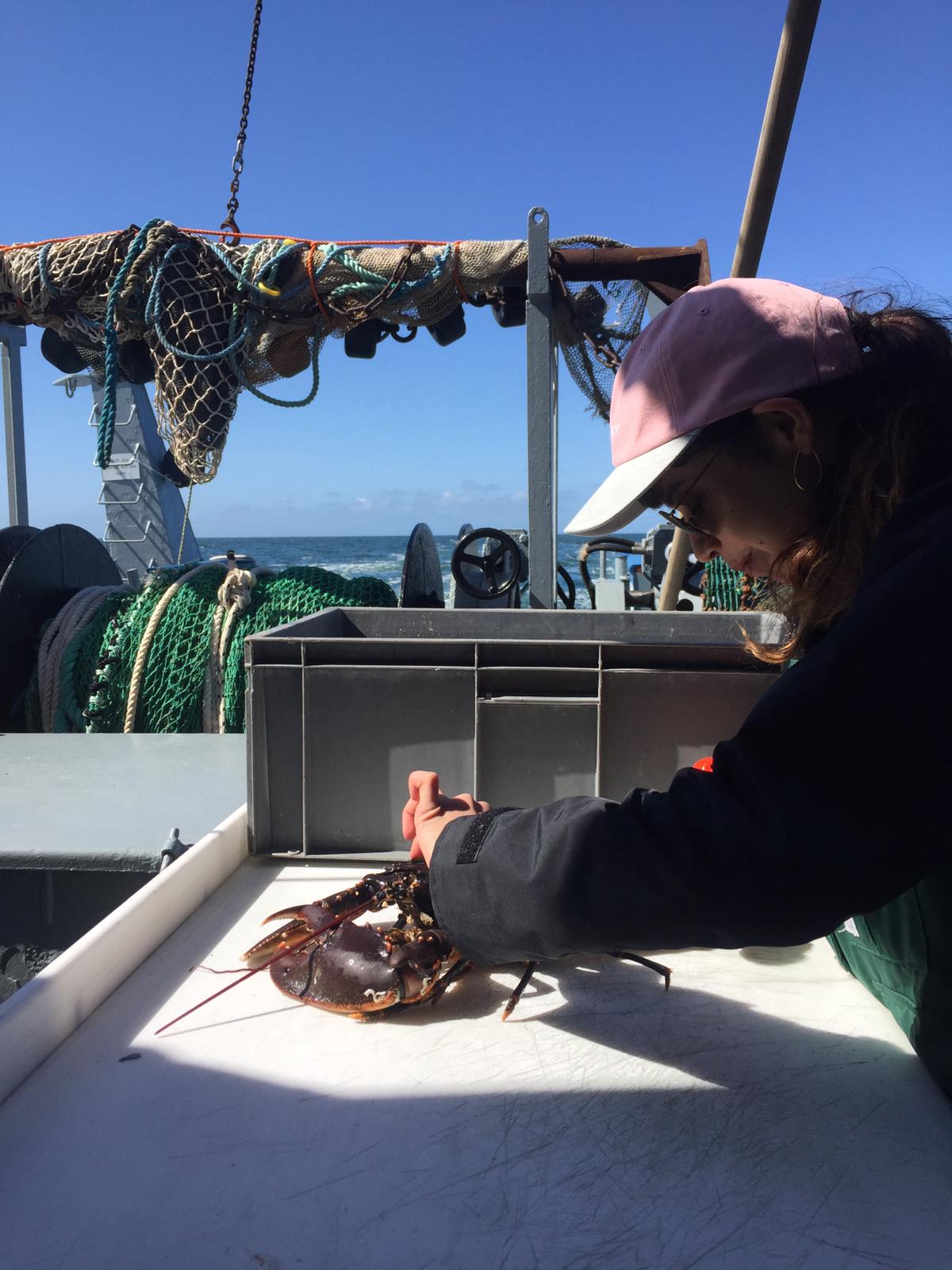 Laura, European Lobster Monitoring Programme, Heliogoland
Laura, European Lobster Monitoring Programme, Heliogoland
Why Lobsters? Well, firstly, I loved studying crustaceans (crabs to be more specific) through my bachelors and masters, so investigating lobsters was a natural progression to continue understanding these creatures.
Secondly, I loved the idea of exploring and living in a remote place. I’ve always had that “travelling bug”, and didn’t think you could get more remote than Heligoland.
Heligoland is also the only place in Germany where you can find the species of lobster I was studying; They prefer rocky bottomed seas, rather than sandy ones, and the island is one of the only “rocky” marine ecosystems in Germany. In WW2 Heligoland was heavily bombed, and killed off a lot of the island’s wildlife populations, including lobserts. So, the species of lobsters you find in Heligoland are not only unique in Germany, but also endangered. I have always been interested in the protection of marine life, so the additional conservation angle was the third motivation to choose Heligoland, and their lobsters!
“I’ve always had that “travelling bug”, and didn’t think you could get more remote than Heligoland.”
So, what have you investigated, and what have you found?
Broadly, my thesis chose to investigate the impact of humans on lobster populations in Heligoland. The research oriented around three different experiments.
The first experiment explored how the operational noise of off-shore wind farms affects the behaviour of Heliogland’s juvenile lobsters. I found that the lobster were more restless, but also less alert to their surroundings – i.e. predators – when exposed to noise.
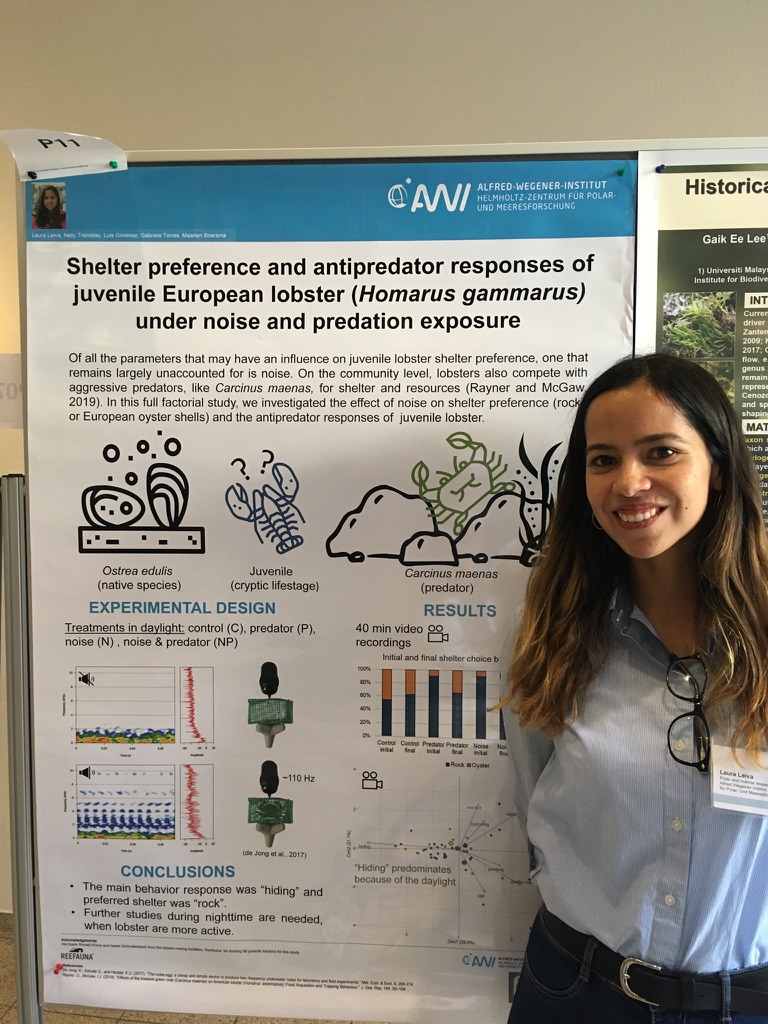 Laura, Poster Presentation of Noise Pollution Research, Heliogoland
Laura, Poster Presentation of Noise Pollution Research, Heliogoland
The second experiment investigated the effect of climate change on lobster populations. Using a worst case scenario forecast for 2100, I investigated the lobster survival rate in water at a pH of 7.7 (which is the anticipated pH according to a worst case 2100 scenario). Mortality rate was higher amongst lobsters placed in this water, and the size of their heads (their rostrum specifically) was reduced. Whilst the worst-case scenario for global temperatures, and ocean acidification, is unlikely, it was still important to investigate the correlation between pH levels and lobster populations.
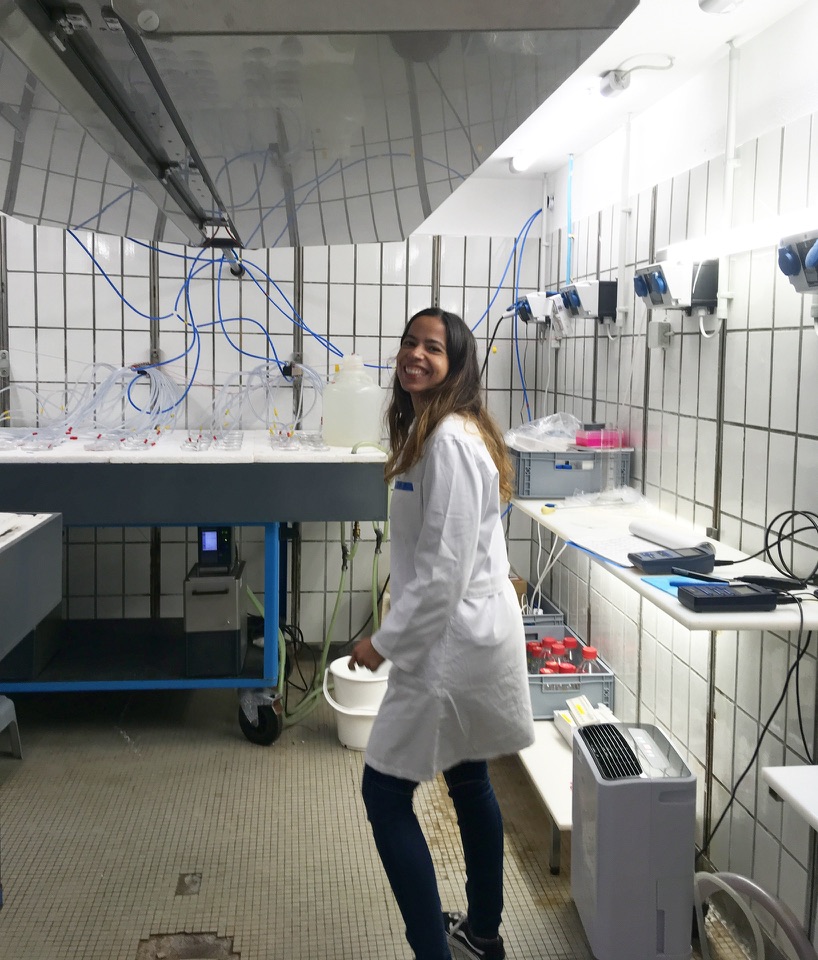 Laura, Ocean Acidification Experiment, Heliogoland
Laura, Ocean Acidification Experiment, Heliogoland
My last experiment, whilst unsuccessful, was still interesting. It attempted to design a trap for lobster larvae. Unfortunately, it caught everything other than lobster larvae – but this is most likely a consequence of the relatively lower concentration of lobsters compared to other marine life on the island.
“…research in and of itself is all about adaptability – experimenting, failing, learning, re-learning, and re-experimenting.”
I have already converted my first two of my experiments into research papers, which is really exciting, and am looking forward to continuing to share my findings moving forwards.
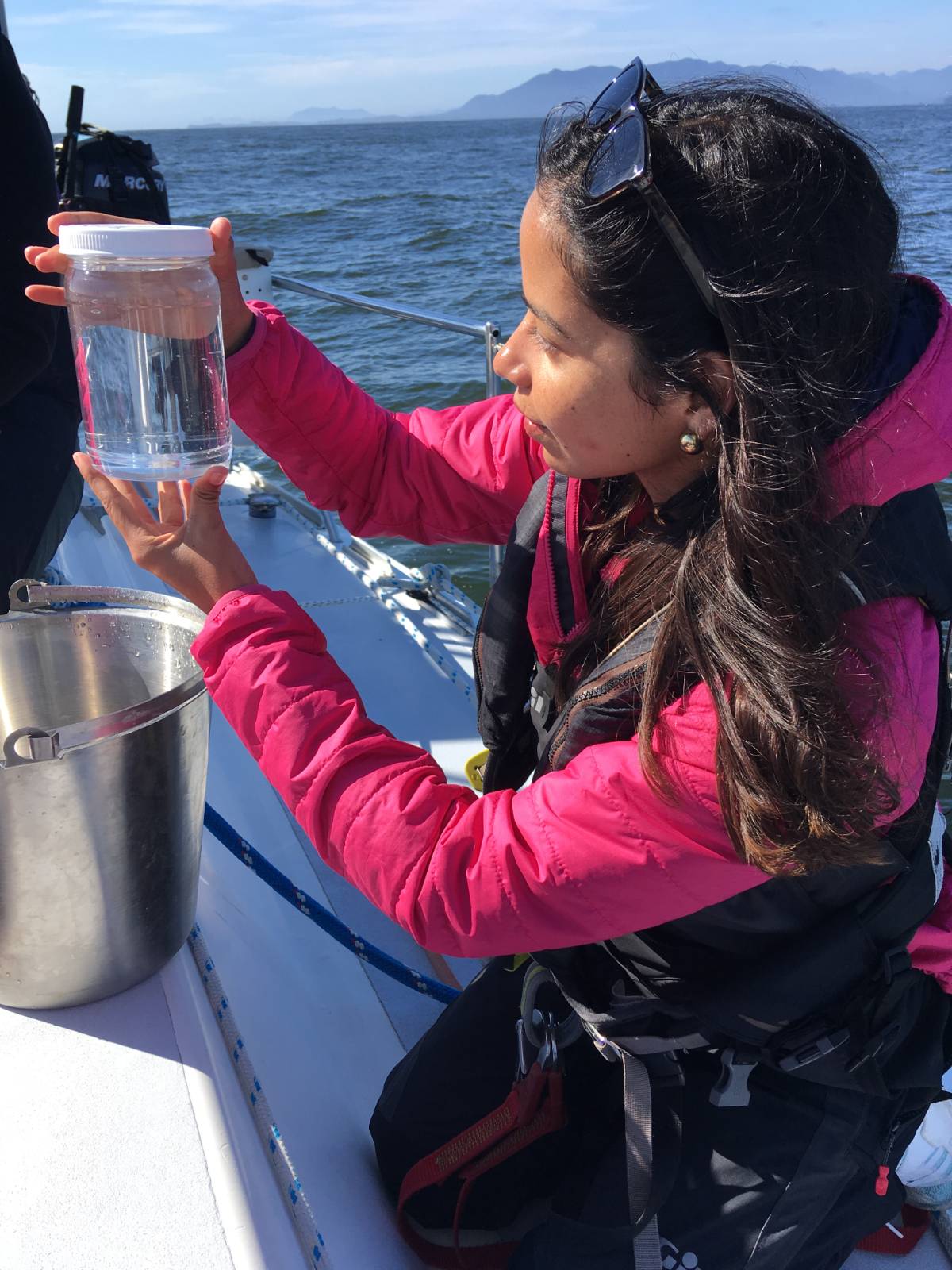 Laura, Water Sampling for POPs, eXXpedition North Pacific, 2018
Laura, Water Sampling for POPs, eXXpedition North Pacific, 2018
What did you learn that most surprised you on the voyage, and has the voyage influenced your work since?
Taking air samples as well as water samples definitely surprised me. I had never considered the fact that microplastics could be spread through the air as well as water!
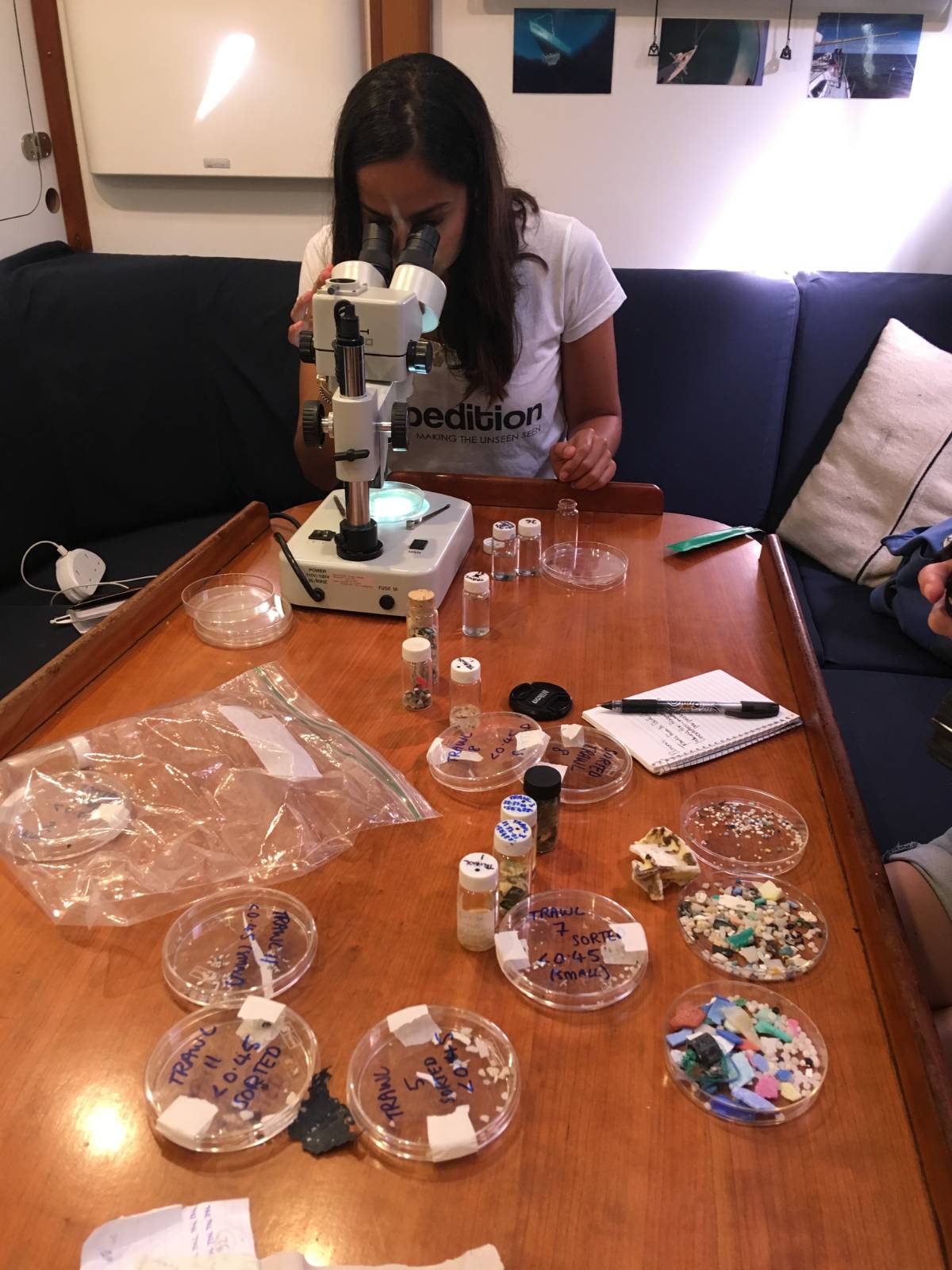 Laura, Sample Sorting and Analysing, eXXpedition North Pacific 2018
Laura, Sample Sorting and Analysing, eXXpedition North Pacific 2018
Equally, eXXpedition really taught me the importance of sharing research, of sharing your story with others, and communicating science in an accessible way. The voyage motivated me to tell the story behind my research whilst in Heligoland. I regularly initiated beach clean-ups with fellow researchers on the island, which was a great way to swap and discuss our findings, whilst continuing to minimise our environmental impact on Heligoland. My current job – in science marketing – has given me the opportunity to explore this idea of “scientific storytelling” from a commercial perspective, and I am excited to see where it goes.
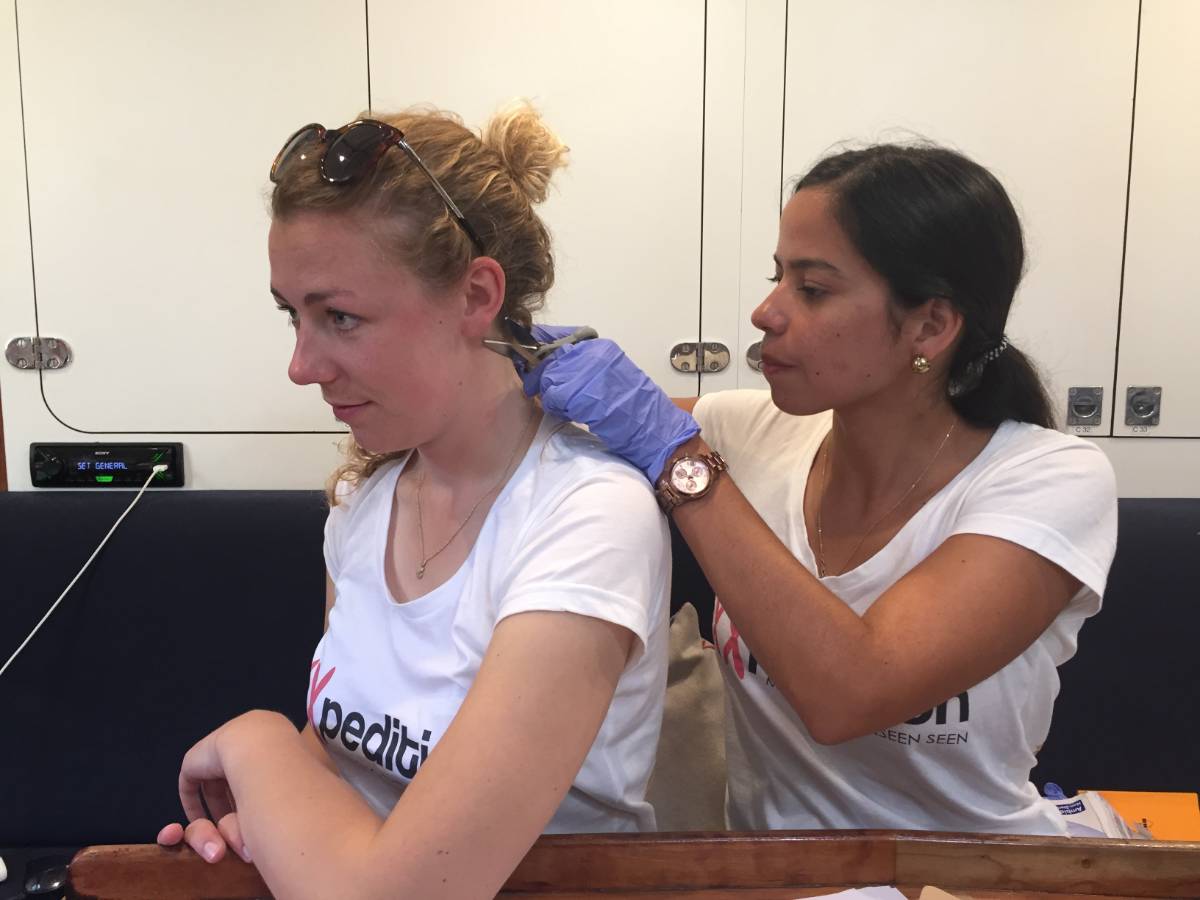 Laura and Beccy, Hair sampling, eXXpedition North Pacific, 2018
Laura and Beccy, Hair sampling, eXXpedition North Pacific, 2018
“I had never considered the fact that microplastics could be spread through the air as well as water!”
The diversity of women and perspectives, during the voyage was also incredibly empowering. For example, meeting Imogen – who was working as a researcher for the National Geographic at the time. She inspired me to continue focusing on marine research and to become a full-time scientist.
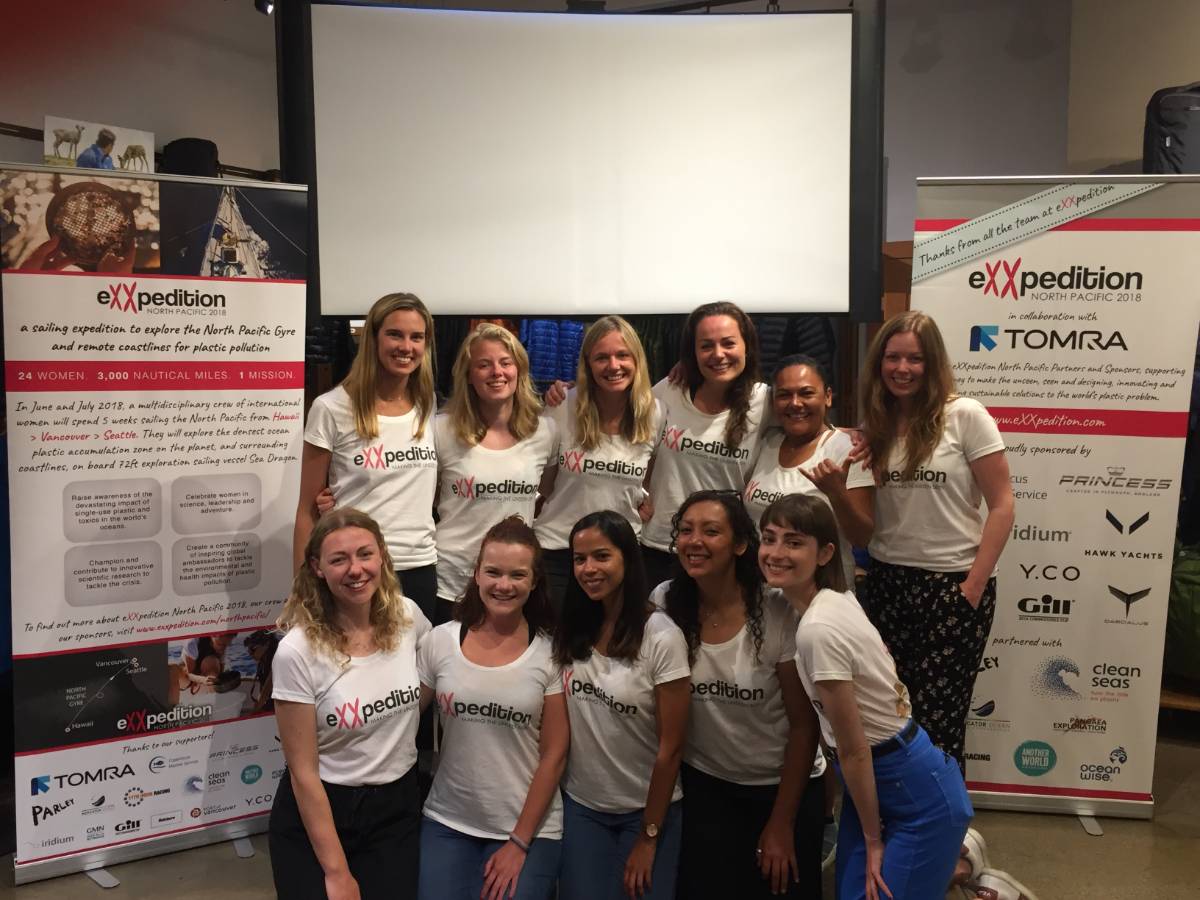 eXXpedition North Pacific, Leg 2, 2018
eXXpedition North Pacific, Leg 2, 2018
“The diversity of women and perspectives, during the voyage was also incredibly empowering.”
How would you describe your superpower?
I would probably have to say adaptability. Living in lots of different places over the years, has made me open to taking on new experiences, exploring new places, and meeting new people. Without adaptability I don’t think I would have been able to do any of this. Equally, research in and of itself is all about adaptability – experimenting, failing, learning, re-learning, and re-experimenting.
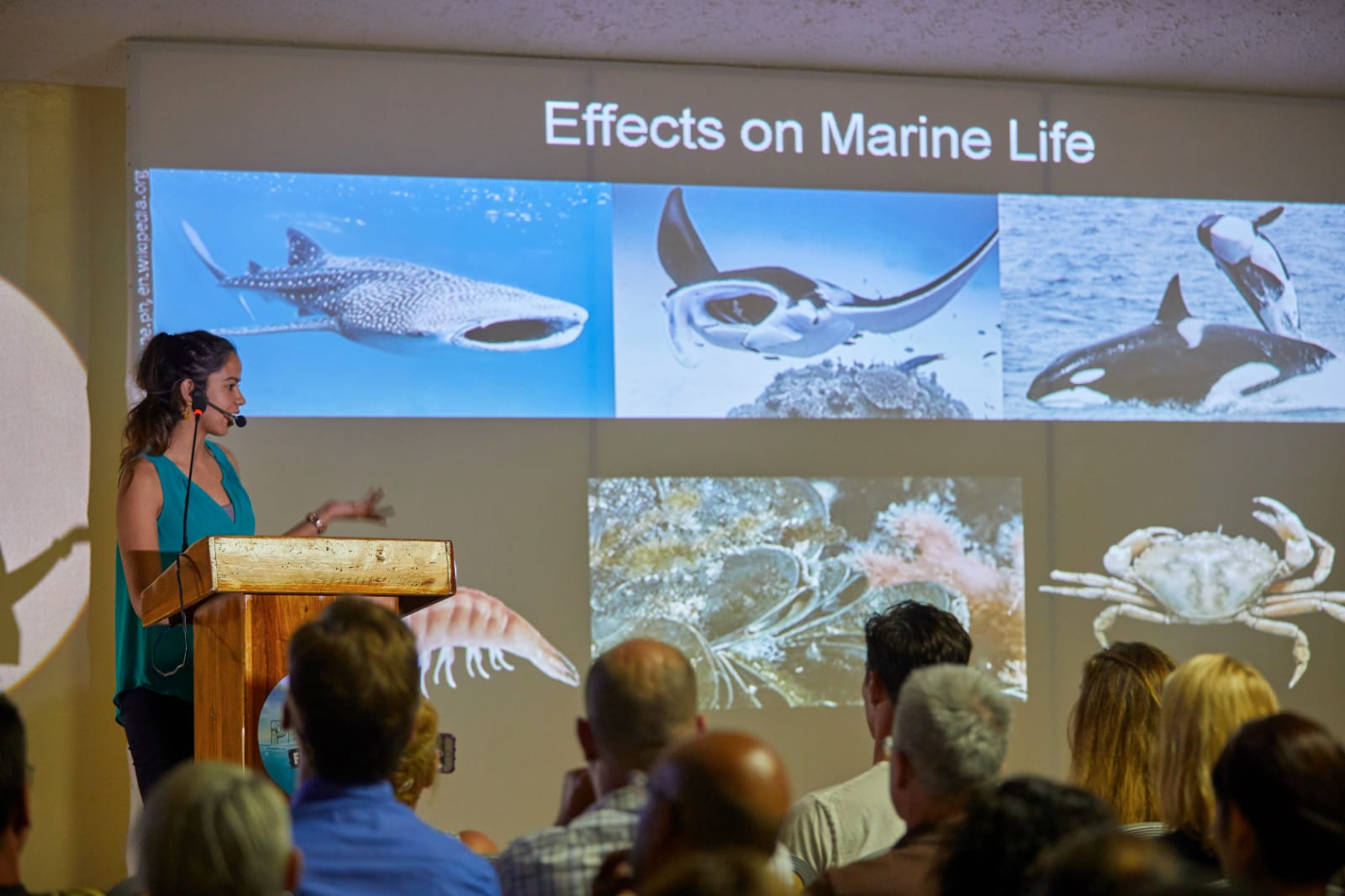 Laura presenting to SodaStream on the Effects of Plastic Pollution on Marine Life
Laura presenting to SodaStream on the Effects of Plastic Pollution on Marine Life
What Are Your Plans Going Forward?
I have already published my research into two scientific journals, but I would really love to publish my work in Frontiers for Kids. The journal tailors itself specifically to young people. It puts all the jargon that comes with “adult” journals in a more accessible format. I have always loved telling stories, as I said. Communicating my findings to a wider audience, beyond the “scientific” audience a typical journal article receives, would be hugely rewarding.
Laura, Beach Clean Up and Outreach, Honduras
I would also love to return to Honduras one day. I always promised myself I would return. The big dream would be to establish my own NGO there, and help protect their tropical marine ecosystems.
